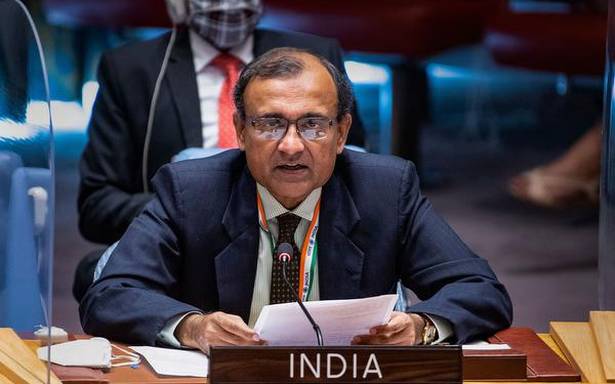India’s Ambassador to the United Nations says worldwide dread methodology is particular, inclinations against adding conservative radicalism, fierce patriotism to hostile to fear goals
Requiring the United Nations to perceive ‘Hinduphobia’ alongside different demonstrations of strict contempt against Buddhism and Sikhism, India’s U.N. agent T.S.Tirumurti said that the U.N’s. most recent Global Counter-Terrorism technique spent last year is loaded with imperfections and is specific, and could invert gains from the worldwide agreement in the “battle on fear” post 9/11. In comments demonstrating the public authority’s inconvenience with new terms being added to the meaning of illegal intimidation, he additionally said that terms like “fierce patriotism” and “conservative radicalism” should not be remembered to goals for psychological oppression, as they would “weaken” them.
“In the beyond two years, a few part states, driven by their political, strict and different inspirations, have been attempting to mark illegal intimidation into classes, for example, racially and ethnically spurred brutal fanaticism, fierce patriotism, conservative radicalism, and so on This inclination is perilous for a long time,” Mr. Tirumurti said, conveying a feature address at a virtual meeting coordinated by the Delhi-based Global Counter-Terrorism Center (GCTC), where he said he talked as Ambassador of India to the U.N. also not in his ability as Chair of the Counter-Terrorism Committee (CTC) at the U.N. Security Council for 2022.
India accepted the seat of the CTC this month, and Mr. Tirumurti’s solid comments propose that India will go against any extension of the terms that are remembered for the UNSC’s conversations on psychological oppression, until it demits the UNSC seat in December this year.
Mr Tirumurti brought up that main strict fears against “Abrahamic religions”: Islam, Christianity and Judaism had been named in the “Worldwide Counter Terrorism Strategy’s” seventh audit passed by the U.N. General Assembly in June 2021. “The development of contemporary types of religiophobia, particularly against Hindu, hostile to Buddhist and hostile to Sikh fears involves genuine concern and needs consideration of the U.N. and all part states to address this danger,” Mr. Tirumurti said, without referencing any models.

